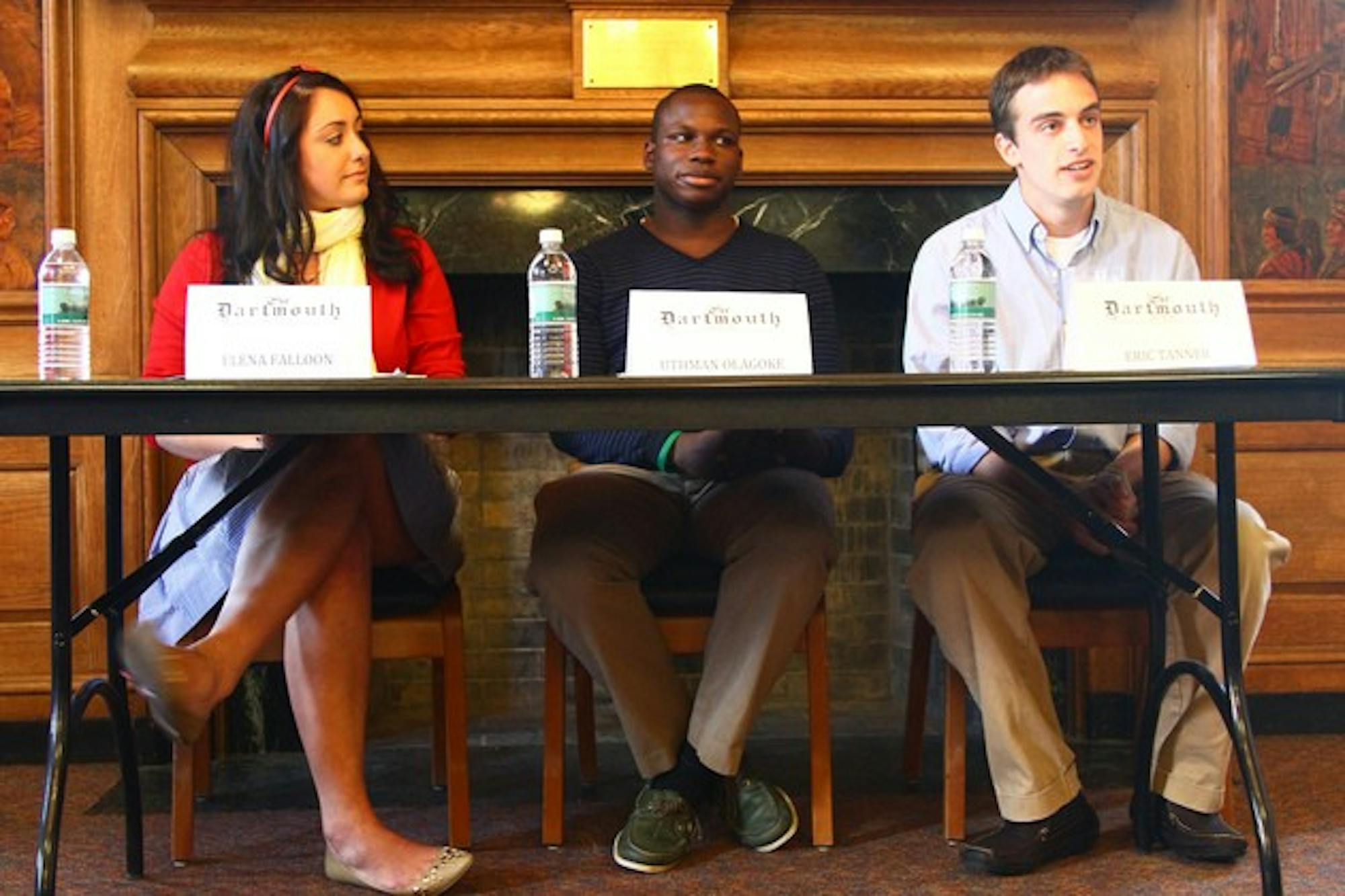The debate featured questions by both The Dartmouth's Editorial Board and students, and was moderated by The Dartmouth's Editor-in-Chief Susan Matthews '11.
All three candidates said they have been involved with the Assembly since their freshman year and that they are knowledgeable about the strengths and weaknesses of the organization.
Tanner advocated large-scale structural changes for the Assembly, while Falloon and Olagoke focused on improving communication between students and administrators.
Tanner said he would work to phase out the current Assembly committees, which manage broader policy areas, and replace them with issue-specific committees. He also hopes to conduct an "internal audit of Student Assembly over the course of the Summer and the Fall," he said.
"Student Assembly for too long has seemed content to let the administration and even other student organizations dictate the agenda for on-campus issues," Tanner said in his opening statement.
Citing the 2007 findings of the Student Government Task Force, Falloon suggested that consolidating and streamlining the various Assembly committees, as well as improving internal communication, could solve structural problems.
Tanner's plan is not necessarily feasible if future student body presidents do not agree with his long-term restructuring goals, according to both Falloon and Olagoke.
Emphasizing the need for the Assembly to move away from programming and more toward policy, Tanner said he would gradually transfer operation of popular Assembly events and programs to other campus organizations, such as Programming Board.
Olagoke agreed that policy, rather than programming, should be the Assembly's primary focus.
Both Falloon and Olagoke said increasing communication between the student body and the administration and Board of Trustees is a primary goal of their campaigns.
Olagoke called for student meetings with the Board each term, while Falloon said that the Assembly should have a representative in "constant contact" with the Board.
The Assembly should give students the tools to present their ideas to high-level administrators, Falloon said.
"Something that Student Assembly should be doing more is empowering students so that they can speak to President Kim and they can speak to the Dean of the College," Falloon said.
The candidates also responded to questions about how they would encourage student involvement in the Assembly. All agreed that expanded outreach is necessary to recruit and retain Assembly members.
Falloon hopes to make the Assembly more accessible to students by hosting think tank events in different social spaces and encouraging the organization to be "actively engaged" in different campus communities, she said. Ideas from the forums would be used to make recommendations and influence policies, Falloon said.
Olagoke also called for the Assembly to work more closely with other student groups on campus and said that he would try to attend meetings for different organizations.
"Currently Student Assembly works in a box where it works solely by itself to address campus issues," he said. "I want Student Assembly to be more of a collaborative body."
Tanner said that he thinks more concrete plans are needed to effect change within the Assembly.
"You can't just facilitate something. You just can't collaborate something. You have to have an actual plan," Tanner said.
Sunday's debate was the first of three scheduled before the April 19 election. The Assembly will host a debate Tuesday and the Interfraternity Council will host a debate Wednesday.
Tanner is a staff photographer for The Dartmouth.




